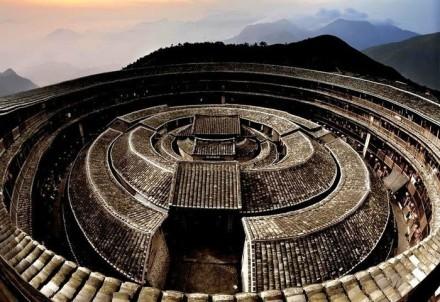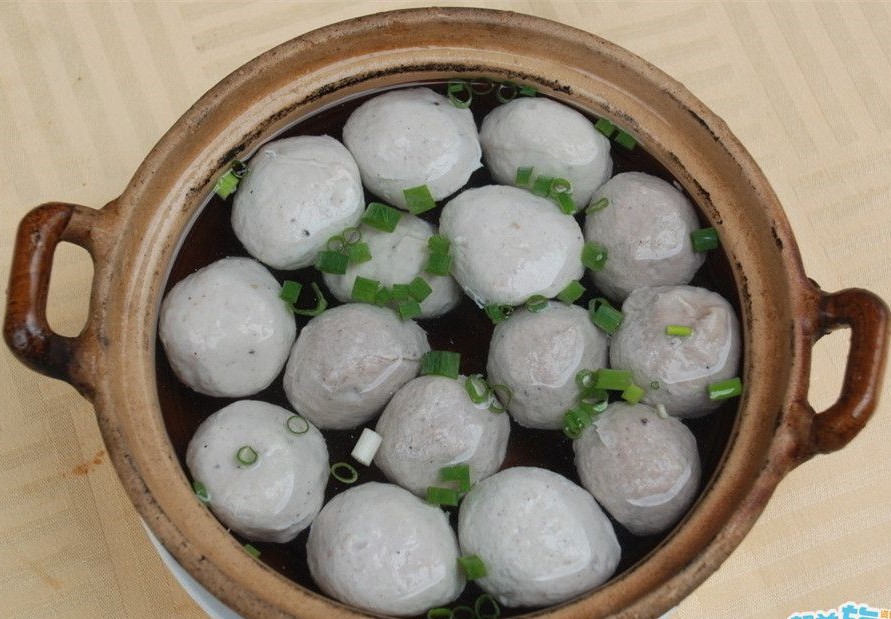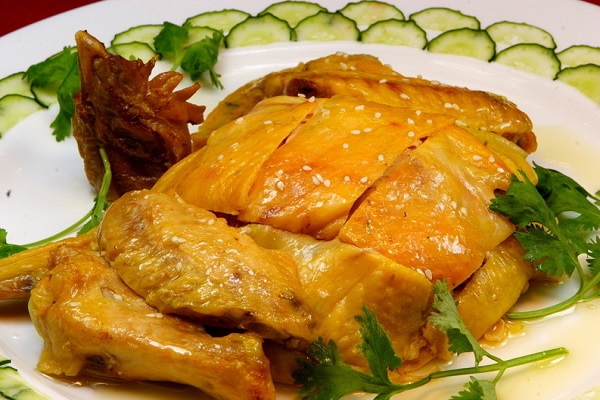Hakka(Chinese: ke jia)is a distinctive Chinese Patriarchal clan. The number of Hakka people around the world is hard to calculate – it varies from 80 million to 100 million according to different calculative standards. Hakka people live mostly in Guangdong, Guangxi, Fujian, Taiwan, Jiangxi and other provinces in China, especially in Meizhou, Guangdong Province: the Capital of Hakkas in the World. Hakka people have their own dialect, traditional architecture and clothes, and their own way to celebrate some festivals. Do you know how Hakka people celebrate the Spring Festival? What delicious food will be put on their reunion dinner table?

The Traditional Hakka Architecture: Wei Long Wu

Traditional Hakka Clothes
As an authentic Hakka from Meizhou, I experience Hakka rituals every Spring Festival and do feel the inner culture in them. Common rituals are affixing images of door-gods (Chinese: men shen), putting up spring couplets (Chinese: chun lian) and offering sacrifices to ancestors as a prayer for blessings, longevity and health. Apart from these customs, I do remember an impressive one: bathing in the water which has some special leaves in it. When I was a kid, my mother would find some pomelo leaves, purslane, cedar leaves and some other leaves that I couldn’t name and put them in the bathing water. It was said that these leaves would keep us away from disease and illness. The water had a clean, fresh and natural smell which I will never forget.
On the lunar New Year’s Day, Hakka people don’t clean the house and some words related to “sick”, “illness” and “death” are taboos on this day, for it is the beginning of a new year. Besides, it is traditional for Hakka people to eat the “noodles of longevity” and vegetarian food on this day.
On the Second Day of the New Year, like what many people do in other places, married Hakka daughters often go back to their own family to visit parents, relatives as well as friends. They usually bring some firecrackers to light (this usually happens in the countryside) and of course some fruits like apples (which imply “safety” in Chinese) and oranges (which imply “luck” in Chinese).
The Third Day of the New Year is a special day for Hakka people. Today Hakka people send away the Ghost of Poverty. Other places do this on the sixth day, but for Hakka it is on the third day. Hakka people will throw away ragged clothes, rubbish and other dirty things that weren’t discarded on the first day, meaning to send away poverty and welcome health and wealth.
In addition to those customs above, what impresses me is the delicious Hakka cuisine that I taste every important festival. The traditional Hakka food bears the deepest memory of every Hakka, especially of those who are forced to leave their hometowns and seek living elsewhere.

Hakka Rice-meat Dumplings

Hakka Yong Tau Fu

Hakka Salt Baked Chicken
Nowadays with the modernization of China, some conventional Hakka customs are still followed today, but some others have fallen by the wayside. For example, fewer people bathe in the water with lovely leaves. And with the app-sent/received “red envelopes” appearing in recent years, more people like to exchange cyber money via red envelopes apps for fun. But no matter in what forms we celebrate the Spring Festival, the most significant thing is that we value the time we spend with our family and friends. Not just Hakka, but all of us, value the beautiful time.

